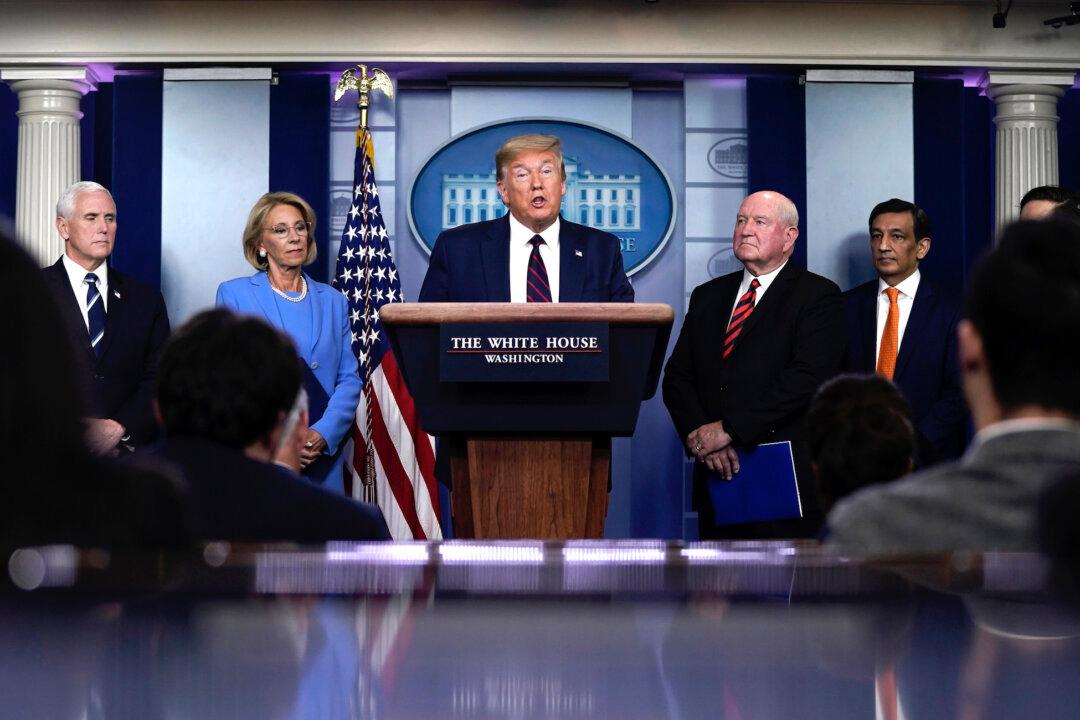President Donald Trump said on Friday that the United States is set to manufacture some 100,000 ventilators in 100 days as demand is on the rise amid the CCP virus outbreak.
The Epoch Times refers to the novel coronavirus, which causes the disease COVID-19, as the CCP virus because the Chinese Communist Party’s coverup and mismanagement allowed the virus to spread throughout China before it was transmitted worldwide. The virus has infected over 100,000 in the United States and killed 1,693 by late March 27, according to data on confirmed cases.




